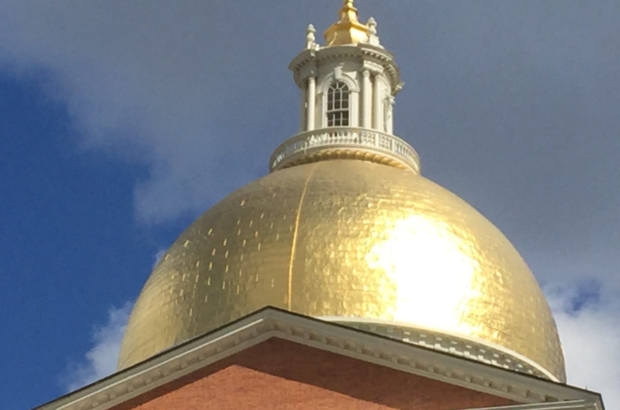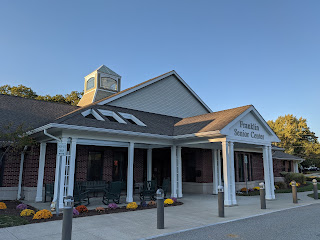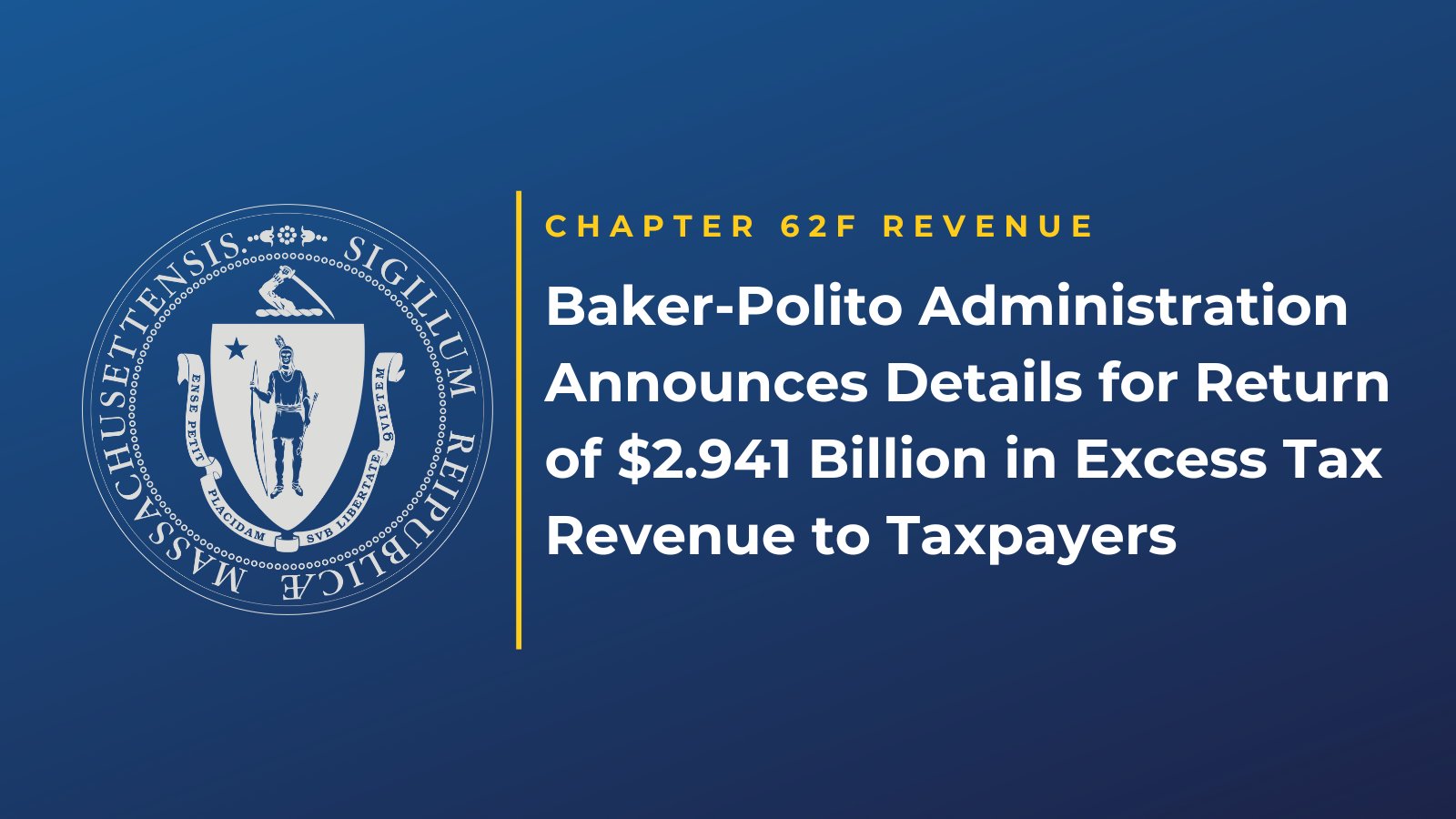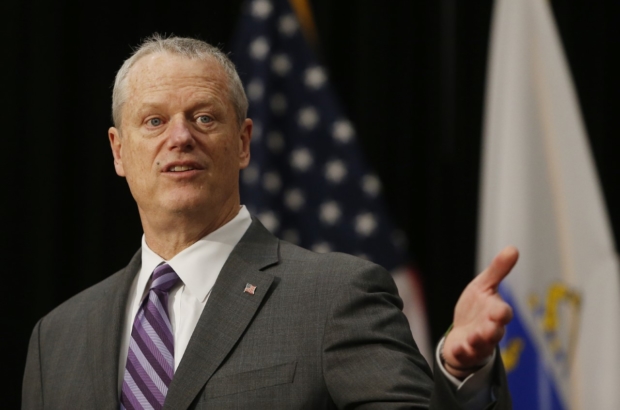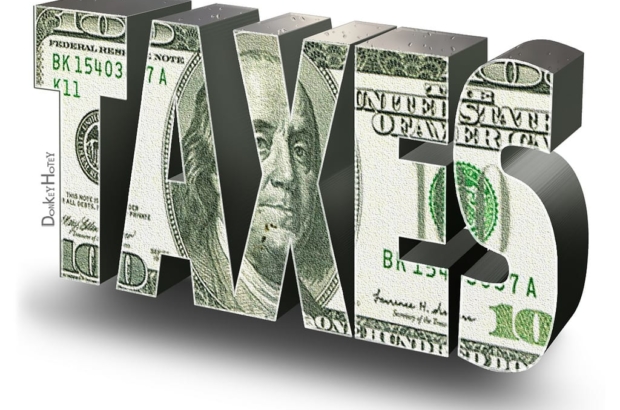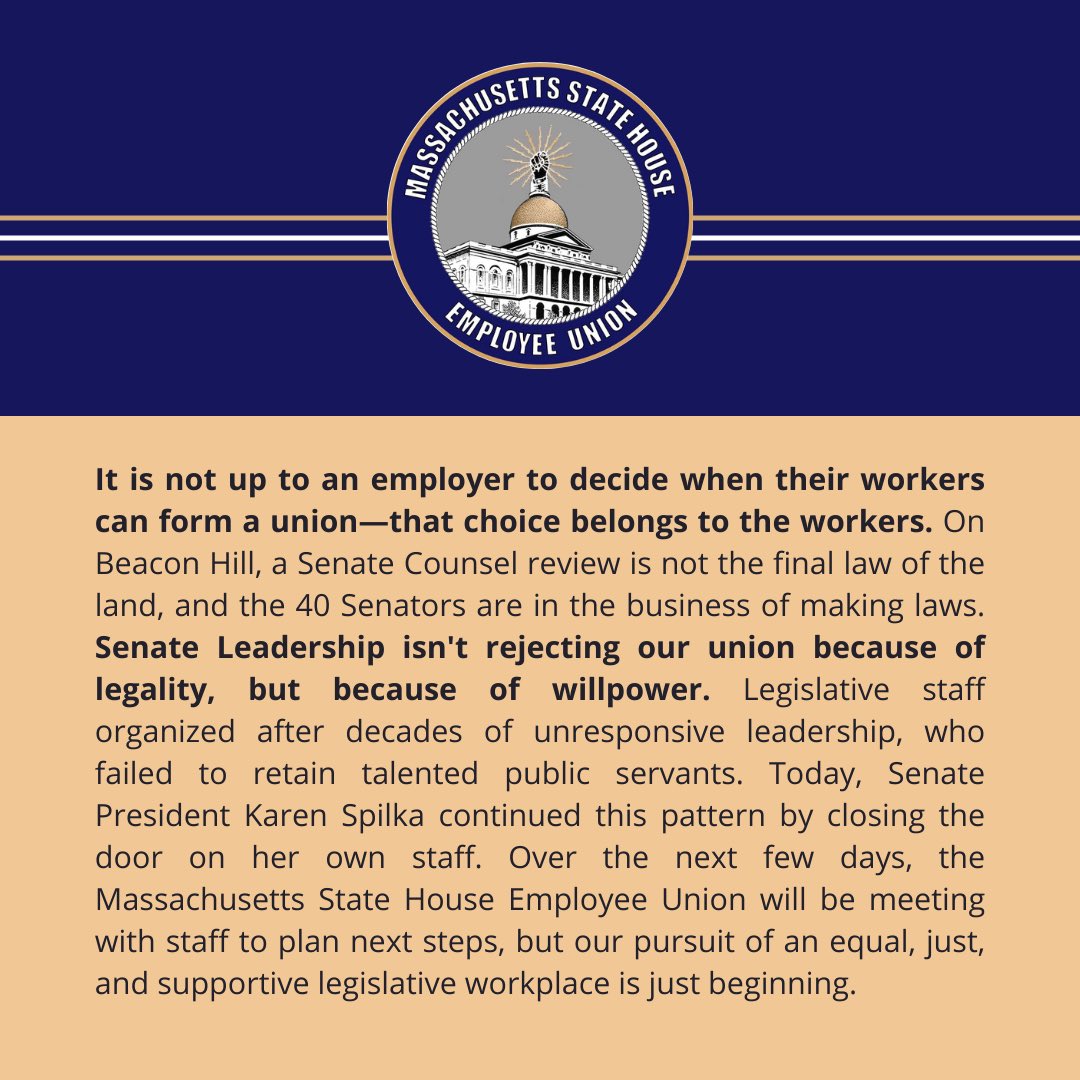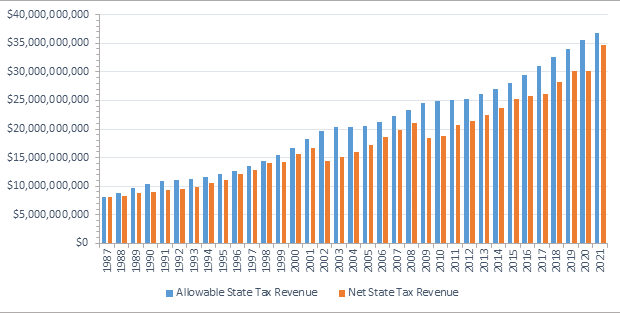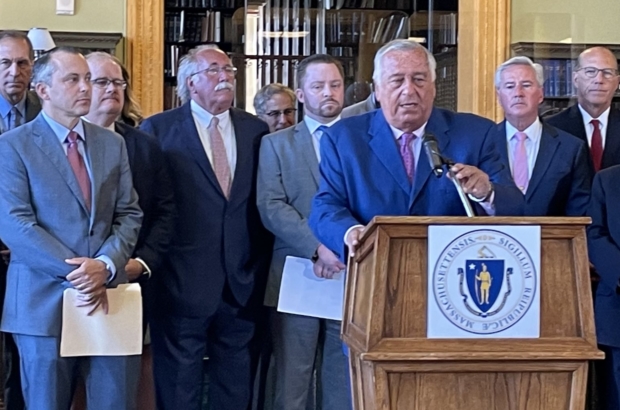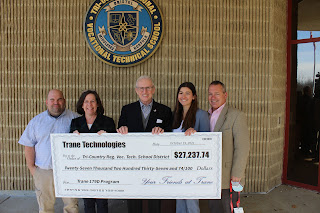$4.57 billion spending package includes tax relief, funding for health care, housing,
technology, tourism and other sectors strained by the COVID-19 pandemic
On Thursday (07/21/2022), the Massachusetts State Senate passed a $4.57 billion spending package to promote economic development in the Commonwealth and give relief to residents facing the continued effects of the COVID-19 pandemic and economic turbulence. The bill includes a broad-based tax relief package that will result in permanently lower taxes for many households and hundreds of thousands of residents receiving rebates from the state. The bill targets investment to sectors such as health care, housing, early education, agriculture, and tourism, which have been impacted by economic uncertainty. The bill also pursues economic growth by investing in climate resiliency, public lands, and clean energy.
"With this legislation, we are taking concrete steps to improve the quality of life for our residents, make Massachusetts more competitive nationally, tackle the dual threats of inflation and economic uncertainty, and build our economy of the future," said Senate President Karen E. Spilka (D-Ashland). "Our tax relief package will make a meaningful impact for many Massachusetts residents and working families, and the rebates continue our commitment to putting money back in residents' wallets. I'm particularly proud of our investments to stabilize the early education and child care sector, as well as the new funding we put towards higher education scholarships in high-demand fields like nursing, early education, special education, and cybersecurity. I would like to thank the entire Senate for their many contributions to this important legislation, especially Chairs Rodrigues, Lesser and Hinds."
"This comprehensive economic development package passed by the Senate is a thoughtfully crafted and multi-faceted proposal that further strengthens our Commonwealth's economic foundation as we emerge from the shadows of the pandemic during a time of uncertainty," said State Senator Michael J. Rodrigues (D-Westport), Chair of the Senate Committee on Ways and Means. "Making an array of strategic investments to support critically important sectors like health care, housing, human services, early education, agriculture, and clean energy, while providing over $1 billion in targeted tax relief for middle class-households, low-income taxpayers, families with children and dependents, renters, and seniors, this bill will help our residents make ends meet, support the needs of our communities and build long-lasting economic security in all corners of the state. I want to thank Senate President Spilka for her leadership and steadfast support, Senators Lesser and Hinds for their meaningful contributions, and my fellow colleagues in the Senate for their input and efforts to further improve the bill."
"Massachusetts has so much to offer as an innovation hub and education leader in our country, but it's getting harder and harder to live and work here. Housing prices are skyrocketing, childcare costs are out of control, inflation is climbing, businesses everywhere are coping with supply-chain issues, and families know that their dollar is not going as far as it did only a few months ago," said Senator Eric P. Lesser (D-Longmeadow), Senate Chair of the Joint Committee on Economic Development and Emerging Technologies. "Today, we passed our economic development bonding bill and tax relief package to bring much-needed financial relief to residents here in Massachusetts. This legislation prioritizes housing, climate resiliency, childcare access, workforce development, downtown revitalization, and the worker of the future. As policymakers, we must be prepared to meet the moment ahead of us and ensure that our Commonwealth continues to be a great place to work and live."
"These crucial changes to our tax code will create much needed targeted relief to families across the Commonwealth grappling with how to make ends meet," said Senator Adam G. Hinds (D-Pittsfield), Senate Chair of the Joint Committee on Revenue and Chair of the Senate Committee on Reimagining Massachusetts Post-Pandemic Resiliency. "As prices rise, we need to continue to invest in the people who need it most, including those who make our economy run."
Tax Relief
This legislation includes $501 million in comprehensive tax relief for lower-and middle-income families, children, seniors, and renters and $510 million in one-time payments to middle-income filers. Notably, $250 in direct relief payments, would be sent in September 2022 to all single-filing taxpayers who earned between $38,000 and $100,000 in 2021, and $500 would be sent to married couples who earned between $38,000 and $150,000 that same year. Businesses would see relief through an investment of $100 million in the state's Unemployment Compensation Fund.
The bill would further provide permanent tax relief by:
- Increasing state matching of the earned income tax credit (EITC) from 30 per cent to 40 per cent of the federal credit, which supports low-income families
- Increasing existing child and dependent tax credits from $180 to $310 per child or dependent and removing the cap on the number of eligible children and dependents
- Increasing the rental deduction cap from $3,000 to $4,000, supporting renters
- Increasing the senior circuit breaker tax credit cap from $1,170 to $2,340, supporting senior citizens and individuals who care for them
- Increasing the Housing Development Incentive Program (HDIP) tax credit annual cap from $10,000,000 to $30,000,000, which helps Gateway Cities expand the diversity of available housing and promote neighborhood stabilization
- Exempting estates valued under $2,000,000 from the estate tax and eliminating the 'tax cliff' by establishing a uniform credit of $99,600
Appropriations
The bill invests $965 million for health and humans services programs, including:
- $400 million for hospitals that have become fiscally strained during the pandemic
- $250 million for rate increases for human service providers
- $195 million for nursing facilities and rest homes
- $80 million for Community Health Centers
- $22.5 million to reduce gun violence and related trauma throughout the Commonwealth, including:
- $5 million for a grant program to support school safety infrastructure improvements
- $2.5 million to provide behavioral health-related supports and resources in schools to reduce instances of gun violence
- $17.5 million for reproductive and family planning services
It also invests $610 million for environmental and climate resiliency initiatives, including:
- $150 million for the Massachusetts Clean Water Trust
- $125 million for the conservation and improvement of publicly owned lands, and otherwise conserved lands
- $125 million for the Massachusetts Clean Energy Center to accelerate the transition to and expansion of renewable energy
- $100 million for ports and port infrastructure to support the clean energy economy
- $100 million to promote and accelerate the adoption of electric vehicles, through the MOR-EV program as well as expanded electric vehicle charging infrastructure
It further invests $400 million for promoting the production of affordable housing, including:
- $150 million to support the production of workforce housing
- $150 million for the Affordable Housing Trust Fund
- $100 million for the CommonWealth Builder Program
The bill also includes a significant investment of $150 million for early education and care providers through the continuation of the Commonwealth Cares for our Children (C3) stabilization grant program.
The bill also creates a new scholarship program, funded at $50 million, to promote the attainment of debt-free higher education for students pursuing careers in high-demand industries, such as health care, education, and cybersecurity.
Bond Authorizations
The bill authorizes $1.4 billion in capital expenditures, including:
- $400 million for the MassWorks Infrastructure Program, which provides grants to municipalities and other public entities for infrastructure project
- $373 million for the Massachusetts Technology Park Corporation (MassTech), which strengthens the competitiveness of the tech and innovation economy in Massachusetts by driving strategic investments and partnerships, including:
- $75 million for a robotics capital program
- $25 million for a program to support minority owned and operated start-ups
- $268.8 million for housing related investments, including:
- $95.2 million for housing authority capital improvements
- $73.1 million for the Housing Stabilization and Investment Trust Fund
- $29.5 million for the Housing Innovations Trust Fund
- $11.7 million for the development of low- and moderate-income housing
- $50 million for matching funds to improve broadband infrastructure
- $50 million for a program to revitalize underutilized properties
- $30 million for the Massachusetts Manufacturing Innovation Initiative, which supports innovation within the state's manufacturing industry, including by offering technical assistance to manufacturers and attracting talent from outside of the state
- $24 million for the Scientific and Technology Research and Development Matching Grant Fund
- $10 million for the Rural and Small-Town Development Fund
- $10 million for Tourism Destination Development Grants
- $5 million for community planning grants
Additional Policy Items
The bill also establishes the following new programs and institutions:
- A Center for Employee Ownership within the Massachusetts Office of Business Development (MOBD), as well as an advisory board on employee ownership to advise the Governor and the director of the Massachusetts Center for Employee Ownership on issues and policy matters pertaining to employee involvement and ownership
- A Cybersecurity Center and a Center for Advanced Manufacturing within the Massachusetts Technology Collaborative
- A commission on agricultural equity to develop recommendations for supporting racially equitable investments, policies and practices for farmers
- A trust fund for the Healthy Incentives Program (HIP), which codifies into law a program that allows people to use SNAP benefits to buy healthy, local fruits and vegetables
- A program in the Department of Agricultural Resources to assist farmers and inform them about state programs and funding opportunities
The bill directs the Massachusetts Emergency Management Agency (MEMA) to consider and develop plans for supporting agricultural, seafood and processed food production in its emergency preparedness planning efforts and also creates a study and report on the feasibility of the sale, lease, transfer or other disposition of the Hynes Convention Center.
Amendments
A number of notable amendments were adopted during the floor debate, including those that would:
- Assist small business owners by creating one simplified portal where businesses can apply for state grants
- Provide Massachusetts consumers with a 'right to repair' their cell phones, by requiring manufacturers to make the documentation, tools, and parts needed to repair devices available to consumers and independent repair shops
- Support the Commonwealth's veterans by increasing the annual payment for disabled veterans and their surviving families to $3,000
- Establish a Hunger-Free Campus Initiative to address food insecurity on college campuses
- Support families that have experienced housing insecurity by allowing certain tenants who have been evicted to seal the records of their eviction case
- Ensure students can obtain academic transcripts for the courses they have completed and paid for, rather than having their entire transcript withheld for outstanding fees
- Expand the ability of homeowners to add accessory dwelling units to their property as an innovative way to address the housing crisis
- Allow restaurants to offer 'happy hour' discounts on alcoholic beverages if a town approves this policy via local option
- Allow state candidates for public office to use campaign funds for expenses related to child care services
- Expand the ciders that are eligible for the reduced cider tax rate, by raising the ABV limit from six per cent to eight and a half per cent
- Empower farmer distilleries to sell wine and distilled products
A version of this legislation having previously passed the House of Representatives, a conference committee will now be appointed to address any differences between the two bills.
 |
| Senate Passes Legislation to Promote Economic Growth and Give Residents Relief |

